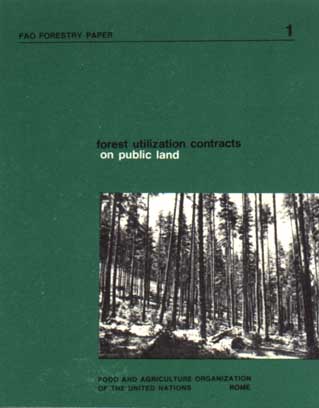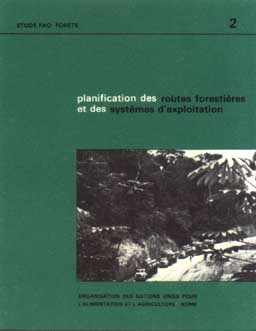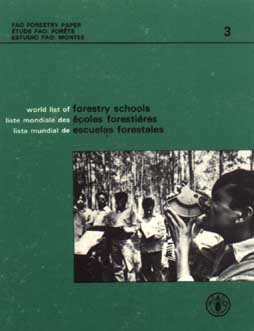Robert Wazeka
The world is taking increasing interest in tropical forestry questions, and at the highest level. Among the latest evidence of this is a report entitled The world's tropical forests: a policy, strategy and program for the United States. It was prepared by a task force on which 15 agencies of the Government were represented, including the Department of State, the Forest Service of the Department of Agriculture and the Agency for International Development. The task force also included representatives from scientific institutes, universities, environmental organizations, and professional and industrial viewpoints. The Department of State issued the 53-page paper as a "Report to the President," thereby underlining the high priority that Washington is giving to tropical forest development worldwide.
Recognizing that the fate of tropical forests will be a consequence of the development strategies and problems of tropical countries is, in our view, the first merit of the report. But right alongside this merit is its straightforward acknowledgement of each nation's sovereign rights over the control and use of its forest resources. It is in this vein that the report discusses the causes and consequences of deforestation and the alternatives to forest removal.
One cannot explain the entire evolution of tropical forests, or solve all their problems, just on the basis of the relationships between renewable resources, population growth, cultural patterns and socio-economic goals in the national scene alone. Implicit in the report is the realistic view that development, however self-reliant and from within, cannot ignore external interdependencies and that it also depends on international cooperative efforts.
This we see as another major merit of the report. It calls for expansion of linkages among national and international organizations and an increase in joint planning and programming.
Overall development strategies of tropical countries themselves will determine the fate of their forests.
The report calls for a United States programme that should be deliberately concerted with those of others. It asks that the proposed strategy should be evaluated against activities already under way. To support a commitment to work within the framework of larger international efforts the report dedicates four pages to highlighting wore already in progress by institutions in other countries, tropical as well as non-tropical, and by international organizations. In fact, the priority elements of the proposed international strategy-monitoring, research, information exchange, training and institution building - are common to a number of existing programmes, in eluding FAO's.
The report notes that FAO, with support from UNEP, has recently completed a pilot inventory in West Africa (Benin, Cameroon and Togo) that sharpens significantly the way fin which Landsat imagery, aerial reconnaissance and photography and ground data can be combined for use in forest inventories in the tropics. Even more important, FAO, again with UNEP's financial help, is, in the final stage of a detailed reassessment of the extent of the tropical forests of the world. When it is published in 1981 it will provide a base-line for objective measurement that has up to now not existed; it will be. possible, finally, to have continuous monitoring of the size and condition of the tropical forest resource of the entire world.
There is in this report a refreshing touch of humility that should go far to give it a sympathetic reception throughout the world. The utility of United States technology and other resources is recognized, but so are the relative paucity of well-qualified United States experts on tropical forests and the fact that what is requested is, above all, a strengthening of forest-related human and institutional capabilities within the tropical countries themselves.
The report prescribes a set of goals for the United States for five, ten and twenty years hence, all of which are of significance to the whole world. These goals may well err on the side of optimism, but they certainly merit serious study worldwide, and in our view they deserve broad support.
While establishing persuasively the basis for concern about the future of tropical forests, the call of the report is for improved management of these forests and not for removing them from further development and utilization. The main conclusion of the report is that the time has come to redress the low priority that management of forest resources-as opposed to mere exploitation-currently receives in many countries.
This report should be widely disseminated.
among the FAO technical papers . . .
a continuously expanding list of studies dealing with specific problems of forestry. Many of these papers are available in all three languages - English, French and Spanish. All are available, on payment of handling charges, from the Distribution and Sales Section FAO, Via delle Terme di Caracalla, 00100, Rome; or through l the authorized sales agents and booksellers listed on the inside back cover.


